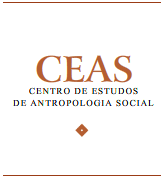Summary
The multiple ties that connect people within a community promote the development of close relational networks that tend to continue across generations. As communities do not constitute exactly formal groups they cannot be described in terms of formal processes of integration, but rather on the description of their life style, which is rooted in a relational cultural process based on common representations and values. In order to analyse the construction of differentiation processes in contemporary Portuguese society we will develop projects on two major directions. One will focus on how primordial relations promote power asymmetries based on constitutive social values – such as gender, kinship and social status. The other will analyse status or local groups to understand how social asymmetries are constructed and reproduced in the wide Portuguese society. Anthropology can bring a new perspective on studies on power through fieldwork that give us a kind of insight to people’s daily life that enable a better understanding of non-formalized power relations and the production of hegemonies and social asymmetries that constitute the basis of power groups. This line of research will thus contribute to a better understanding of the profound economic, social and cultural changes in contemporary Portugal.

